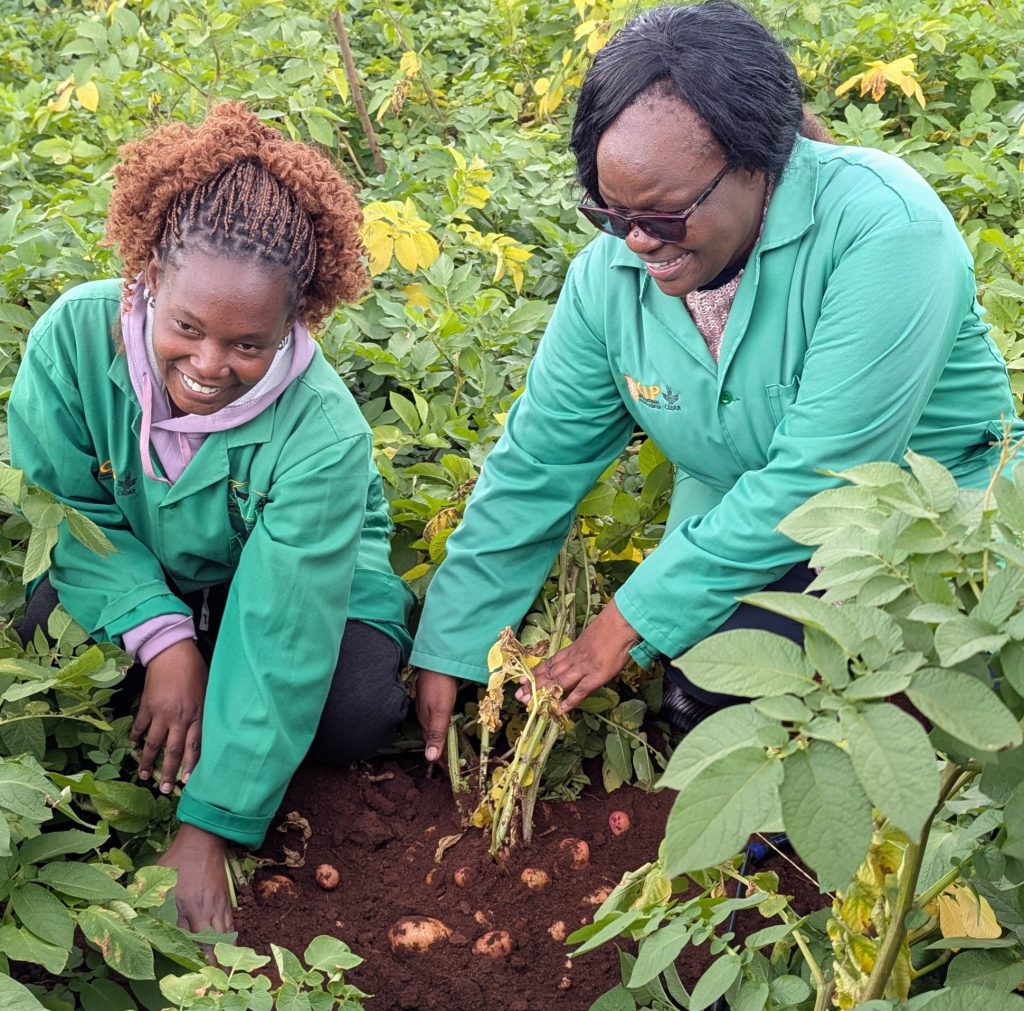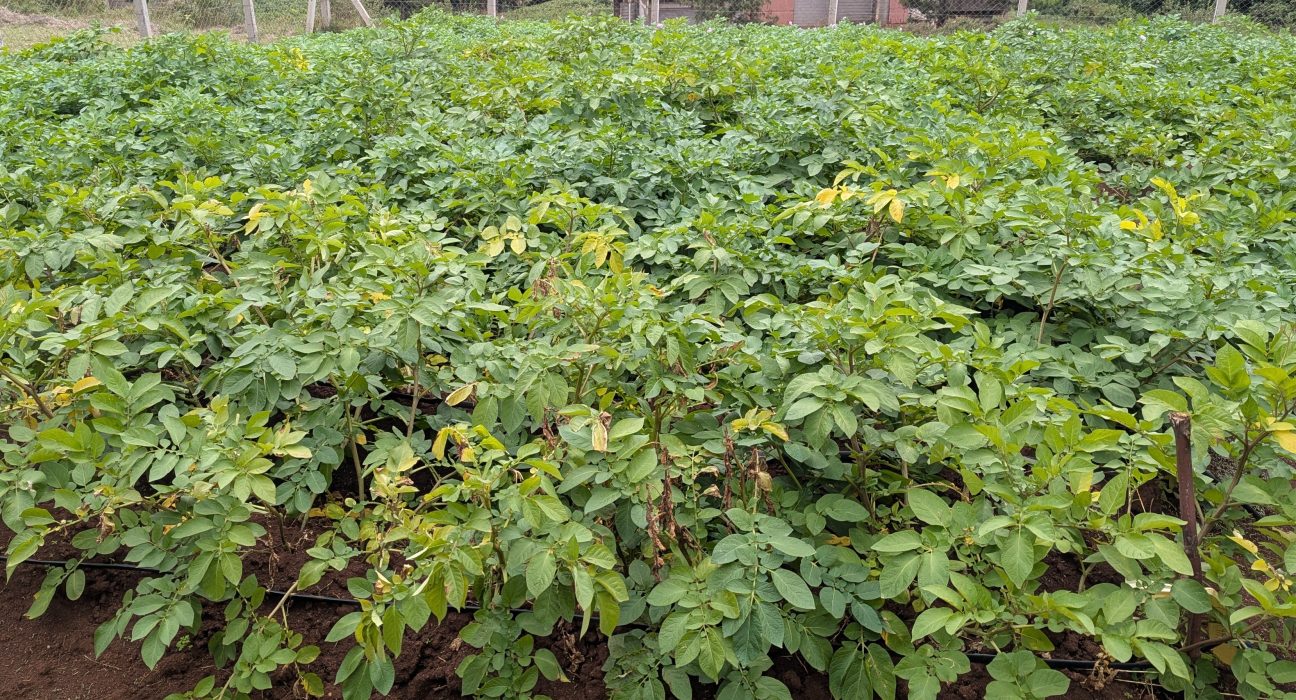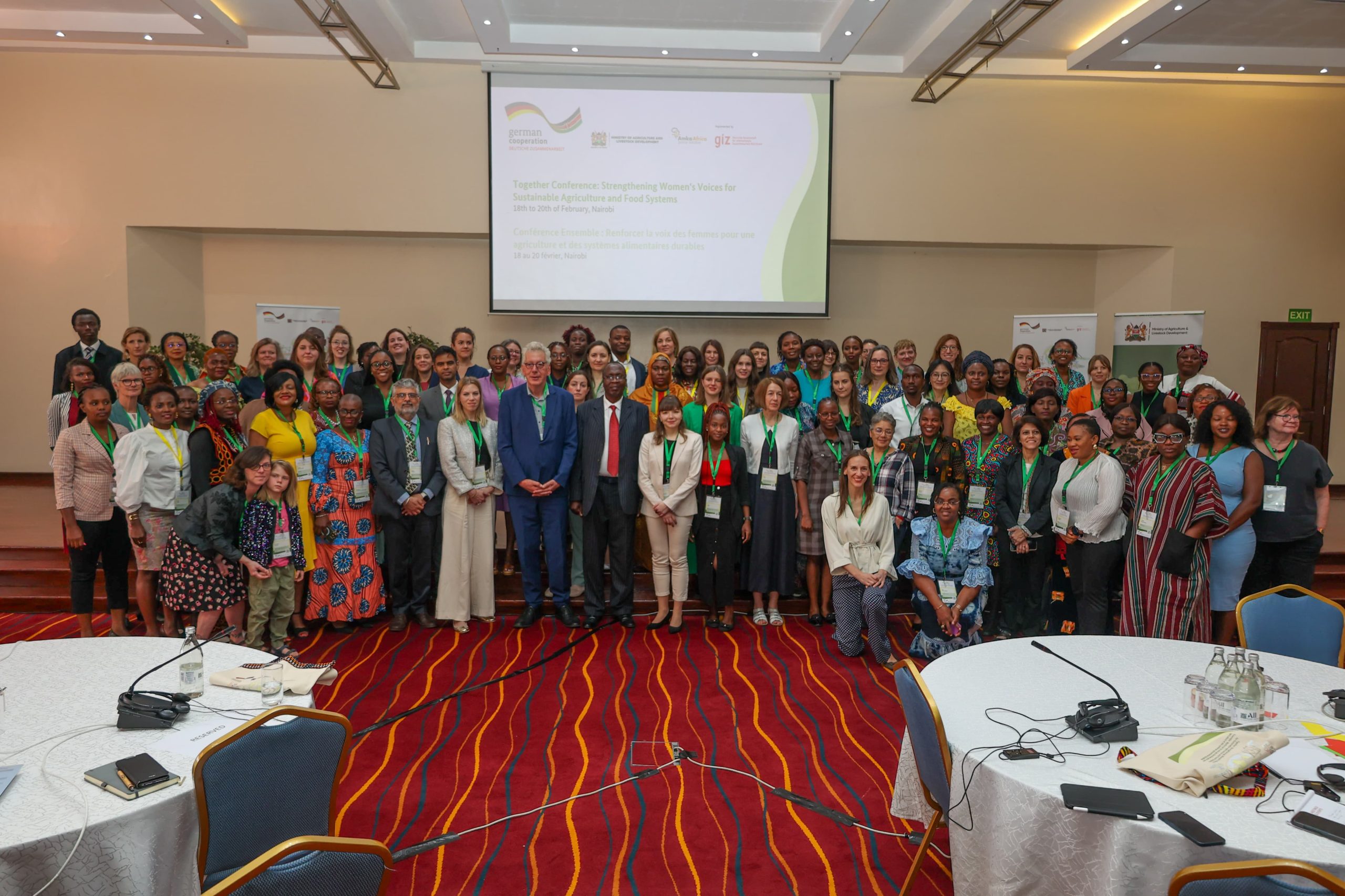By Eddah Waithaka
Kenyan farmers could be planting a genetically modified potato resistant to the devastating late blight disease as early as next year, a move scientists say will slash production costs, boost yields, and reduce harmful pesticide use.

The new variety, developed by the Kenya Agricultural and Livestock Research Organization (KALRO), is currently awaiting environmental approval from the National Biosafety Authority (NBA). This breakthrough promises to tackle one of the most significant constraints to potato production in the country head-on.
“Potato late blight causes devastating losses. Researchers talk about more than 16 percent loss due to this disease,” said Dr. Paul Chege, a Senior Program Officer at ISAAA AfriCenter, during a recent media briefing. He explained that farmers currently rely on up to 13 rounds of fungicide sprays per season to control the fungus, a practice that is both costly and hazardous.
“This technology alleviates farmers from a lot of back-breaking labor and ends up increasing yield,” Dr. Chege said. “The youth that would have been lost to the disease is now realized in harvests.”
The science behind the potato is precise. Researchers inserted three specific genes that confer complete resistance to the late blight pathogen. Dr. Moses Nyongesa, Center Director of the Potato Research Centre at KALRO, stressed that this genetic addition is the only difference between the new variety and conventional potatoes.
“We tested 13 [nutritional] parameters… and on each one of those parameters, we found no difference between the non-transformed and the transformed equivalent,” Dr. Nyongesa stated. He further confirmed that the plants are identical in agronomic and phenotypic characteristics, including leaf and flower appearance, tuber shape, and skin color.
Dr. Miriam Mbiyu, a plant scientist at KALRO, emphasized that the potato will offer a familiar experience for consumers and farmers. “We analyzed proteins, carbohydrates, and other nutritional compounds, and found no differences,” she said. The modified variety uses popular base varieties like Shangi, Asante, and Tigoni, simply adding the benefit of disease resistance.
The potential impact on national production is substantial. Current potato output stands at around 3 million metric tons annually. Scientists project that widespread adoption of the blight-resistant variety could increase that yield by up to 30 percent, a crucial boost for national food security.
The path to a farmer’s field is now in the hands of regulators. KALRO has concluded rigorous confined field trials and submitted its application to the NBA. Once approved, the process will move to a public participation phase, followed by national performance trials across six potato-growing regions.
Dr. Nyongesa outlined an optimistic timeline: if national trials begin in October, all data could support a recommendation for release by mid-2025. Following a declaration by the Cabinet Secretary for Agriculture, the seed would then be commercialized.
To ensure equitable access, KALRO plans to license the technology to seed companies on a non-exclusive basis. “It is a public variety… it will be licensed on a non-exclusive basis so that it is available to all,” Dr. Nyongesa confirmed.
For Kenyan farmers struggling against the relentless pressure of late blight, this potato represents a future of less cost, less labor, and more food on the table.







